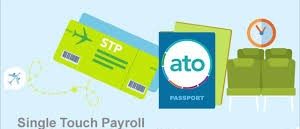Posts Categorized: SMSF
2022 Federal Budget
Please find attached a briefing paper outlining the various announcements within the 2022 Federal Budget. This will shortly be followed by a more detailed tips and traps analysis.
It is important to remember that a Federal Budget is only a series of announcements. The announcements still await being passed into law even if the starting date was stated to be Tuesday night. That said, the fuel excise reduction legislation was passed yesterday.
Moreover, we have an election just weeks away and very possibly a change of government. Labor has already stated that they intend to hand down their own Budget later in the year should they win the election.
I take this opportunity to highlight what I believe are the 6 most important announcements that affect most clients. Not all of these may affect you personally and other announcements may, but these are the 6 with the widest impact:-
- Cost of living support through the $250 cost of living payment and the $420 increase in the Low and Middle Income Tax Offset.
- I must admit that even with low interest rates, I didn’t see this one coming given prevailing share and property prices – an extension of the 50% minimum pension reduction for the 2022/23 year.
- 20% extra deduction for small business expenditure on digital adoption expenditure.
- 20% extra deduction for skills and training expenditure.
- 50% reduction in the fuel excise tax for 6 months.
- Covid test expenses paid by employees and employers will be tax deductible and employers will not be subject to Fringe Benefits Tax.
And as far as I can read so far, there was no announcement as to another extension of the instant asset write-off. So this means that after 30th June 2023, small businesses will not be able to deduct in one year the full cost of any asset they buy; noting that cars are subject to a limit. It will be some time before supply chains revert to pre-covid norms, so best to start planning any asset purchase sooner rather than later. And remember, this means that any asset purchased must be installed ready for use before July 2023.
As I said, we will come back to you with a more detailed tips and traps analysis. In the meantime, I leave you to read the attached briefing paper and moreover welcome any questions you may have.
You can access our briefing paper by clicking here.
Payroll reporting deadlines

With the progressive roll-out of Single Touch Payroll, year end finalisation deadlines are tightening. It’s not like the “good old” Payment Summary days were one had to the 14th August to return the stationery. Employers are now required to complete the Single Touch Payroll finalisation step by 14th July.
Thankfully though two extensions are available this year:-
-
In response to demands caused to business owners, 31st July
-
For closely held employees (family members) 30th September
Those larger employers that are subject to Pay-roll Tax are due to certify the 2020/21 remuneration by 21st July. This is not just a matter as in addition to wages, salaries, commissions, directors fees, bonuses and so on, Pay-roll tax is also payable on:-
-
Superannuation
-
Some fringe benefits
-
Payments to certain contractors (including some corporates).
Whilst 28th July is the end date for paying the June quarter SG super, payments through clearing houses can take up to 10 days. We therefore recommend that the June quarter super be processed no later than Friday 16th.
We welcome any question you may have about these matters.
Important SG super changes

As you will have read in our Budget analysis and no doubt been notified by your software provider, please ensure that you are calculating SG super as from July at 10%.
It is opportune to remind you that SG is payable on what is called Ordinary Times Earnings (OTE). OTE is not calculated on a number of items including overtime and some bonuses. You can read more here.
And in closing just a reminder that the removal of the $450 monthly; threshold is due not to be removed until 1st July 2022.
Payroll processing is complicated. Moreover errors can prove costly. We are therefore pleased that Xero now interacts with KeyPay (QuickBooks Online has used a limited version for 5+ years). Please ask us if you would like a review of your payroll system.
What’s in the Budget for you?
What’s in the Budget for you?
Probably significantly more than you think.
As what is now unfortunately the norm, there were plenty of pre-announcements before Budget night. But there is much more to the Budget that was announced on Budget night or leading up to it.
In addition to some key business announcements (extension of loss carry back company rules and instant asset write-off) there were very welcome announcements to being able to getting more money into super. Welcome I say as how can one provide for retirement with a contribution cap – which currently sists at $25,000 before being eroded by 15% tax, life insurance premiums and for some an extra 15% tax).
Also of note were the proposed changes to personal and self managed super fund residency rules. I say welcome as the existing rules are quiet archaic in context of how people today live, work and travel – mind you we still aren’t going anywhere for a while with covid.
We will explore some of the key measures in our next survive and thrive webinar. It will beheld at 5.30pm on Wednesday 2nd June and you can book here – https://tinyurl.com/reg0206
We will also flesh out some opportunities in upcoming blogs.
But having said all that, please keep in mind that:-
-
A Budget is only ever a series of announcements,
-
They still have to be legislated,
-
They may be changed slightly and
-
Many have start dates form July 2021 – and we may have a change of government before then.
Please though don’t hesitate to call us if you any questions.
Relief to SMSF property owners
Thankfully the ATO is on record as to providing relief to SMSF property owners.
In today’s climate, many landlords are reducing the rent to help retain tenants.
However, there has been concern that a self managed super fund charging less than market rent on a commercial property to a related party would still constitute to a breach/contravention.
The ATO has now stated that they will not take action against a temporary rental reduction in either the remainder of this 2019/20 year or 2020/21.
So what is an acceptable rental reduction?
That remains to be seen and should be monitored. However, the most common story over the last two weeks seems to be that rents are being reduced by between a third and a half.
Binding death benefit nomination
For a binding death benefit nomination to be binding:-
-
It must be made in favour of a tax dependent.
-
It must be done using the approved form for the fund.
-
It must be witnessed.
-
It must be made whilst having mental capacity (so an elderly person may be wise to have their GP assess their cognitive powers).
A binding death benefit nomination only holds for 3 years. After 3 years, it loses its validity.
Whilst a binding death benefit nomination must be followed by the super fund trustees and therefore creates certainty, it may not be the best option for you.
You should not execute a binding death benefit nomination until you have completed a full estate planning review and done so with the input of your accountant, financial planner and estate planning lawyer.
Early release of super
Part of the first stimulus package was the to permit an early release of super within the next 6 months.
For some, this may be what gets them through this period. But it will not be appropriate for many.
There are many reasons as to why one should not take up this option.
Moreover, it should NOT be done without first obtaining financial planning advice. You must ensure that taking super out before retirement is an appropriate course of action.
The qualifying rules can be found at https://tinyurl.com/tojexfp
If you are with a public fund, you may find that they do not offer an early release of super – which is understandable considering the cost to temporarily changing all their systems.
If you have your own self managed super fund, then you should assume that you can’t. Many trust deeds wont permit such a withdrawal before age preservation age – so if you do pull money out then it is a notifiable breach.
So please don’t assume that you can withdraw some of your super or that it is your best course of action. Seek advice first.
ATO focusing in on investment strategies
The ATO is focusing in on investment strategies.
Last September they wrote to, and scared the life out of, 17,700 self managed super fund (SMSF) trustees.
Last week they released their guidelines. We will explain their approach and demands as we study these guidelines.
We will also be in discussion with our SMSF auditor.
We do not believe any major shift will be applied retrospectively.
SMSF investment strategies
Last month, the ATO wrote to 17,700 self managed super funds (SMSFs) trustees and threatened fines of up to $4,200. The letters were sent to trustees where their SMSF had more than 90% of its assets in one asset class.
It has now come to light that the vast majority of those letters went to those funds where property was the main asset and there was a limited recourse borrowing arrangement (permissible borrowing with super).
The point remains though there is nothing wrong with borrowing nor buying a property within a SMSF. Both are permissible (as long as all relevant requirements are satisfied).
This includes documenting your decisions to do so within an Investment Strategy.
The only thing that appears to have changed is that the ATO has now re-defined a 23 year old requirement and are now expecting trustees to document the decision why you have decided to do so.
Accountants can’t advise on where you should invest your super (they can only provide a template for you to fill in and complete). If you need assistance with the process and/or want to know the long term ramifications of your strategy (and options) then you should speak to a financial planner.
STP starts next week!
Single Touch Payroll (STP) starts next week!
From Monday 1st July all businesses will be required to report to the ATO each employee’s gross pay, tax and super no later than the day of payment.
Whilst there are extensions available we generally recommend not using them as it only creates more work later – and therefore cost.
If however you need to rely on an extension, then you must have applied for one by week’s end.
Either way, you have to do so something.
We have been taking our clients through the transition journey principally by way of a series of weekly preparatory emails.
If your accountant hasn’t helped you then it is time to change accountants! Contact us below and we can discuss how we can help you.

